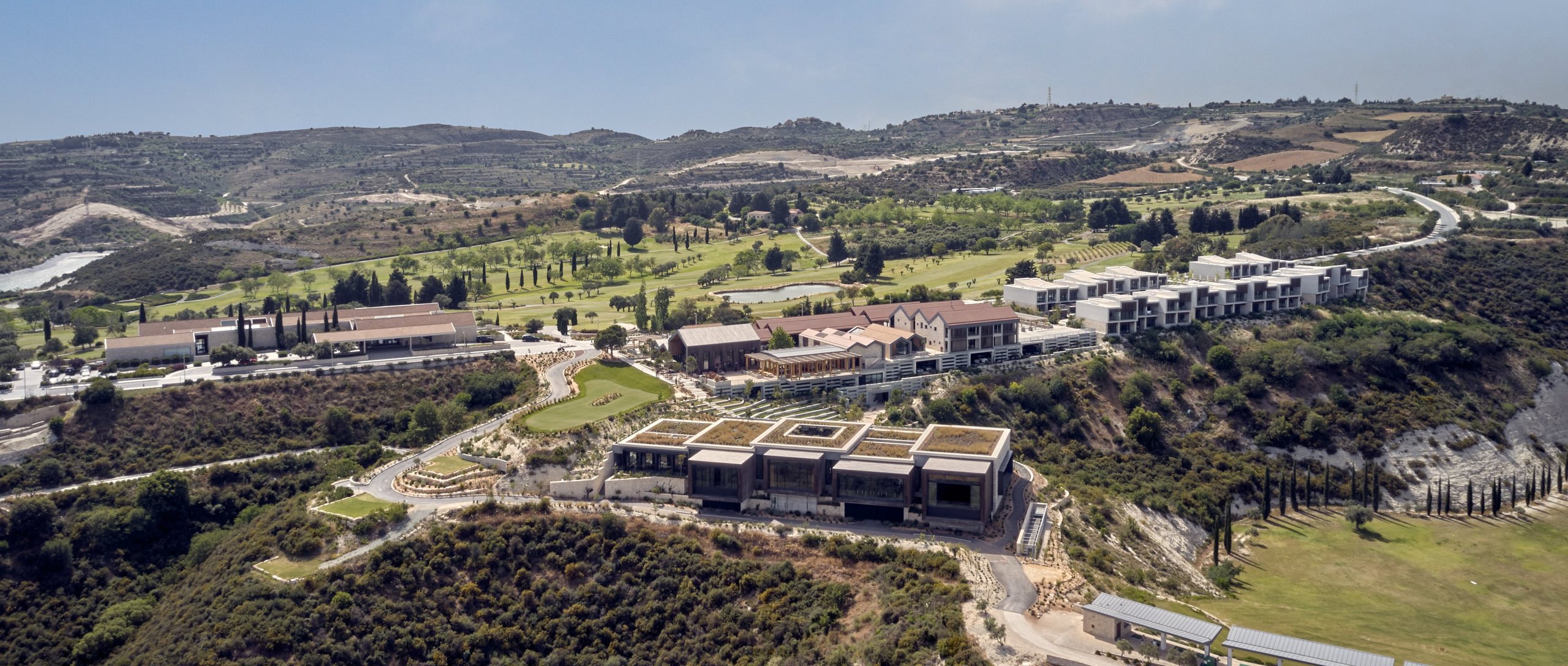For most people moving to the island, learning the language in Cyprus will be something they think about at some point. It’s a wonderful country – friendly, sun-drenched and steeped in rich culture – but when you’re trying to integrate into the community, opening a bank account or even just chatting with your neighbours, understanding Greek goes a long way.
That said, you don’t necessarily need to be fluent. Cyprus is incredibly welcoming, and English is widely spoken, especially in tourist areas and by young people. But if you really want to feel at home, build lasting connections and deal confidently with everyday paperwork, gaining some Greek skills will make a big difference.
Contents

Languages spoken in Cyprus
Cyprus has two official languages: Greek and Turkish. However, the island is divided between the internationally recognised Republic of Cyprus (in the south) and the Turkish Cypriot-administered north. In the Republic of Cyprus – where most international buyers settle – Greek is by far the dominant language.
The Greek spoken here is a local dialect known as Cypriot Greek. It’s closely related to standard modern Greek but has unique expressions, pronunciations and vocabulary. If you’ve studied Greek before or are learning from textbooks, the differences won’t stop you – locals will still understand you perfectly.
English is widely understood too. Most Cypriots under the age of 50 will be familiar with it, thanks to mandatory English education in schools, TV shows and Cyprus’s international connections. In tourist areas, you’ll find menus, street signs and services offered in English. In official institutions like banks or hospitals, English-speaking staff are common.
Still, relying solely on English can feel limiting, especially if you plan to live outside the main towns or build closer ties with the community. When you embrace the language, you’ll find your experience becomes much richer.
For a closer look at purchasing property abroad, download your free copy of our Cyprus Buying Guide:
Download the Cyprus Buying Guide
Do you need to learn Greek to live in Cyprus?
In short – no, but you’ll likely want to. Many expats live happily in Cyprus with limited or no Greek, especially in areas like Paphos, Larnaca or Limassol where international residents make up a large share of the population. Daily life – grocery shopping, dining out, getting internet installed – is manageable in English.
That said, anyone considering permanent relocation or planning to spend most of the year in Cyprus would benefit from learning Greek. It not only opens up job opportunities, but also helps you build genuine friendships, understand local news and contribute to your new community. In rural villages or smaller towns, Greek will be much more important than in the urban centres.
Don’t overlook how language impacts your comfort and confidence. Reading a bill or asking about repairs is much less stressful when you know what’s going on. Plus, locals genuinely appreciate when foreigners make an effort to speak Greek. Even broken Greek often earns warm smiles and helpful support.
It’s also worth remembering that official correspondence and legal forms – from Cypriot property taxes to residency paperwork – are nearly always in Greek. Staff at government offices often speak English, but the forms won’t, and having some reading comprehension can save you time, money and frustration.
How long does it take to learn Greek?
Greek isn’t an easy language, and that’s not a secret. According to the US Foreign Service Institute, Greek takes around 1100 hours of study for English speakers to reach fluency – about double the time required for Spanish or French.
But don’t let that put you off learning the language in Cyprus. Fluency isn’t necessary for a comfortable life. Even grasping the basics – greetings, numbers, directions, essential verbs – will take you a long way. Spending just 30–60 minutes a day practising Greek could see you speaking comfortably within a year.
And if you’re living in Cyprus, you’ll absorb much of the language naturally. Supermarkets, road signs, neighbours, news bulletins – it all becomes part of your day, helping you to learn without even realising. This kind of “immersion learning” is far more effective than memorising vocabulary in front of a screen.
Set realistic goals. Focus first on what helps you most – perhaps ordering at a café or understanding how to pay bills. Over time, you can aim for more complex tasks like reading the newspaper or watching TV news.
How to start learning Greek in Cyprus
There are many ways to start learning the language in Cyprus – from formal classes to smartphone apps. If you’re already in Cyprus, you’ll have lots of opportunities that make the process enjoyable and sociable.
For structured learning, many towns have private language institutes offering weekly Greek lessons for adults. These are often in small groups, with one or two sessions per week. Prices vary, but you can expect to pay around €25–€35 per hour, and classes are usually held in the late afternoon or evening.
The Cypriot government also supports Greek language learning through affordable lessons in public schools. These programmes are aimed at foreigners and taught by trained instructors. Classes are usually held late in the day to fit around working lives, and they often cost less than private lessons – sometimes they’re even free. You’ll find them in cities like Nicosia, Limassol, Paphos and Larnaca – call your local town hall or school to enquire about enrolment.
Online learning tools such as Duolingo, GreekPod101, or even YouTube language channels can supplement your classes or provide basic skills for free. Podcasts and audio courses are great for picking up pronunciation, especially while driving or walking. However, apps alone won’t give you confidence to hold a conversation – real-life practise matters most.
Finally, consider language exchanges. Meet-ups between locals and international residents, where everyone practises each other’s languages over coffee or wine, are growing in popularity. It’s a great way to make friends too.
Using Greek in everyday situations
Even knowing just a handful of Greek phrases can ease your day considerably. Imagine walking into a bakery and greeting the staff in Greek – it changes the whole interaction. People treat you differently when they see that you’re making the effort, no matter how basic your skills are.
Try to use Greek whenever possible, even if the conversation eventually switches to English. Locals will often reply in English to help you, but don’t let that discourage you – keep going in Greek. Many locals will happily slow down or repeat things to help you learn.
You’ll also notice how your understanding grows over time. At first, menus and forms will look like alphabet soup. But soon enough, you’ll start picking out words and spotting patterns. You might even find TV soaps or news broadcasts more accessible over time – that’s when you know your confidence is growing.
There are practical benefits too. Dealing with electricity bills, phone contracts or residency permits becomes smoother if you understand the paperwork – especially when things go wrong. While many officials speak English, having just enough Greek to follow the form or ask simple questions can save hours of stress.
Learning Greek is about more than just words – it’s a bridge into the culture, a way to feel at home and a sign of respect for your new neighbours. You don’t have to be fluent, just willing. So start small, practise often and enjoy the process. Whether it’s over a coffee, at the beach or during a chat with your neighbour, every word you learn opens another door to your new life in Cyprus.
For your next steps, be sure to book a free call with one of our Cyprus experts. They can help you get started on your journey to finding a home and building a life in Cyprus.
FAQs about learning the language in Cyprus
No, many expats live comfortably in Cyprus without speaking Greek, especially in towns like Paphos and Limassol. However, learning the language helps with integration, paperwork, and building deeper community ties.
Greek is considered a challenging language for English speakers, requiring around 1,100 hours to reach fluency. However, you don’t need to be fluent to get by – even basic knowledge makes daily life easier and more enjoyable.
You can learn Greek through private language schools, government-supported classes, apps like Duolingo, or language exchanges with locals. Town halls often provide free or low-cost lessons in major cities such as Nicosia, Limassol and Paphos.
Yes. English is widely spoken in the Republic of Cyprus, especially in tourist areas and by younger people. However, official documents and many forms are in Greek, so learning the language is helpful for long-term residents.
Absolutely. Cypriots are welcoming and supportive of language learners. Even basic greetings in Greek can lead to warmer interactions and a greater sense of belonging in the local community.









